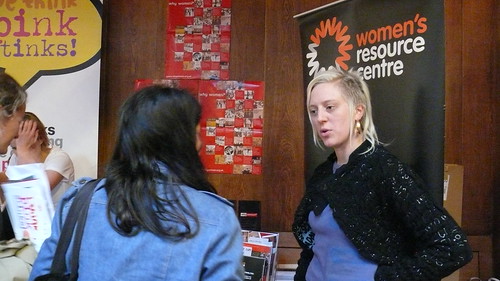
Yesterday, around 60 people turned out for our WRC/ WOMANKIND Worldwide event on putting the UN Convention on the Elimination of All Forms of Discrimination Against Women (CEDAW) into action.
The main attendees were from women’s organisations around England, including: Rise, Women @ the Well, Brighton Women’s Centre, Women’s Networking Hub, Sparkhill Asian Women’s Association, Her Centre, SERICC, FORWARD, The Fawcett Society, the Daphne Project, Sandwell Rape and Sexual Violence Support Service, WILPF, Women's National Commission and more.
Other attendees included human rights groups: British Institute of Human Rights, UNA-UK, Oxfam, UNIFEM UK… and even a delegate from the Metropolitan Police!
Speakers were women from front line (Rape Crisis, South Africa) and second tier (Institute for the Defense of Women’s Rights, Peru) women’s orgs from Nepal, Ghana, Peru, South Africa and Zimbabwe. These women have been using CEDAW to mobilise women locally and lobby their own governments for changes in women’s lives around sexual and reproductive rights, violence against women, sexuality, social and economic rights, political representation, and much more.
The participants extracted learning from these experiences for application in the UK – with a focus on making CEDAW relevant to women and actually being able to use it here. We looked at opportunities and challenges, and ideas for individual organisations, WRC, other partners and the government to take forward.
Key messages include:
- There is a hunger to learn more about CEDAW
- CEDAW is the framework within which all our work sits, in that it is soley concerned with women and has as its core equality, non-discrimination and obligation for state parties to eliminate discrimination against women
- Women’s organisations and government officials need training and information on CEDAW, especially in the regions (i.e. outside London)
- We need to think about some test cases, especially for future use of the Optional Protocol
- This needs to be properly funded work, both at an individual organisation level (e.g. orgs to include a budget line in each funding application for lobbying) and at a second tier level (i.e. coordination of shadow reports)
- The process of writing shadow reports needs to be truly democratised to allow for the widest range of input from diverse women and their orgs
- It is so important to mobilise, work and lobby together
- It is good that we have started NOW in preparation for 2012.











